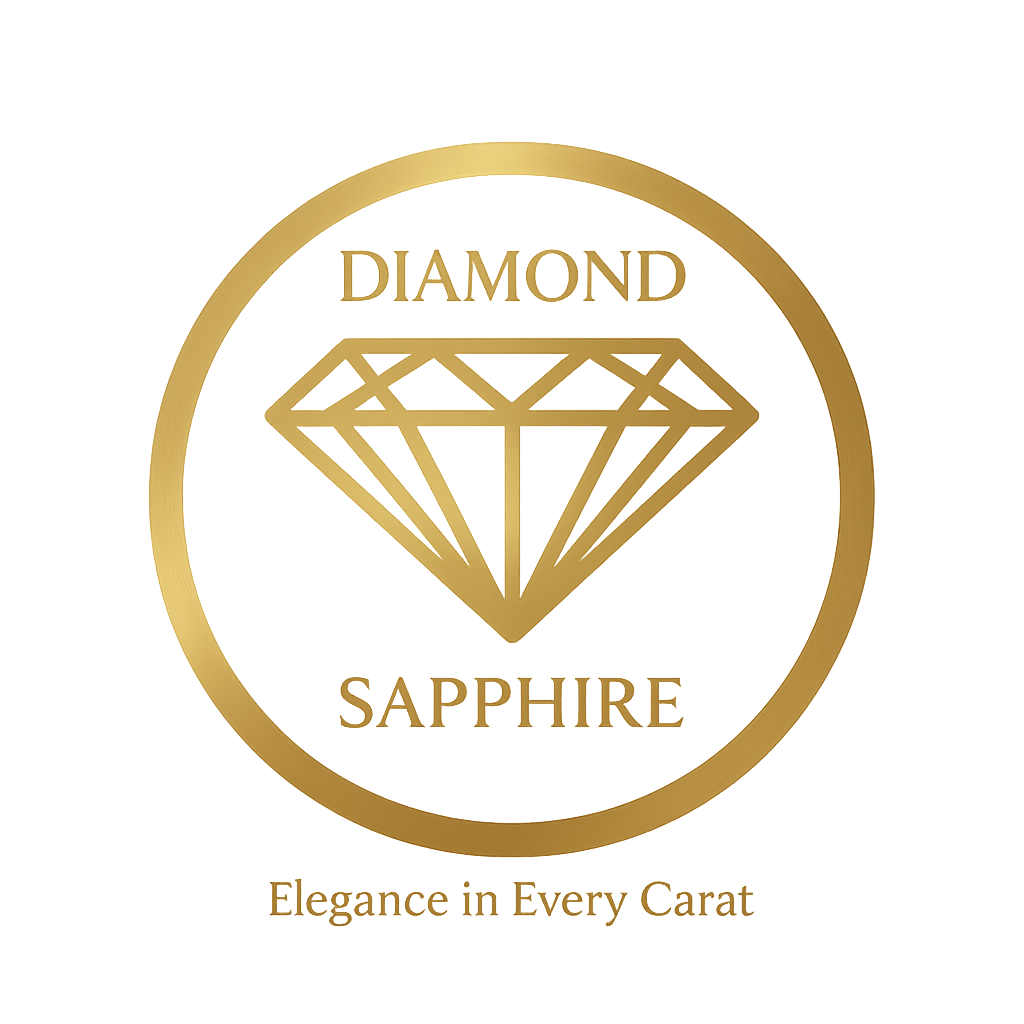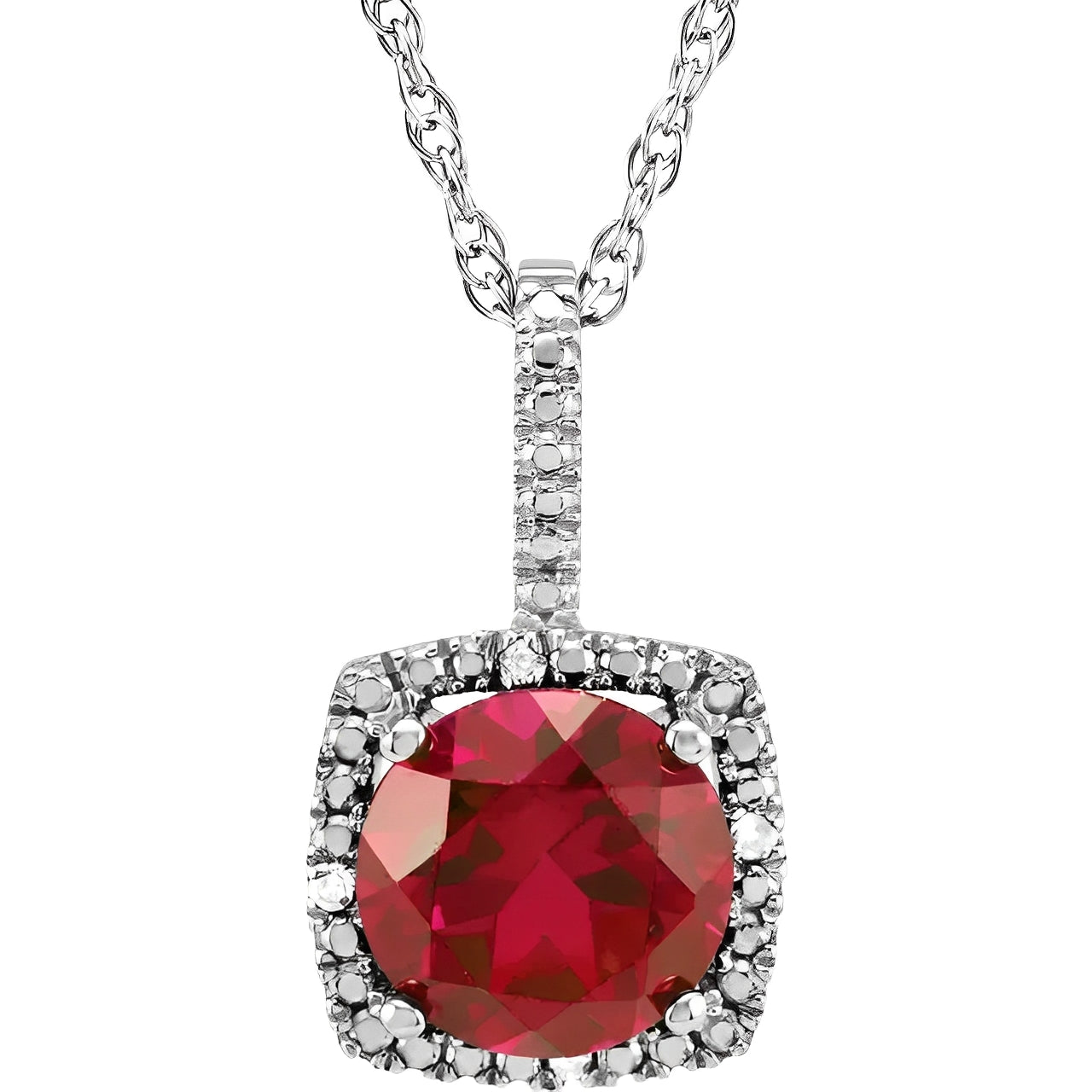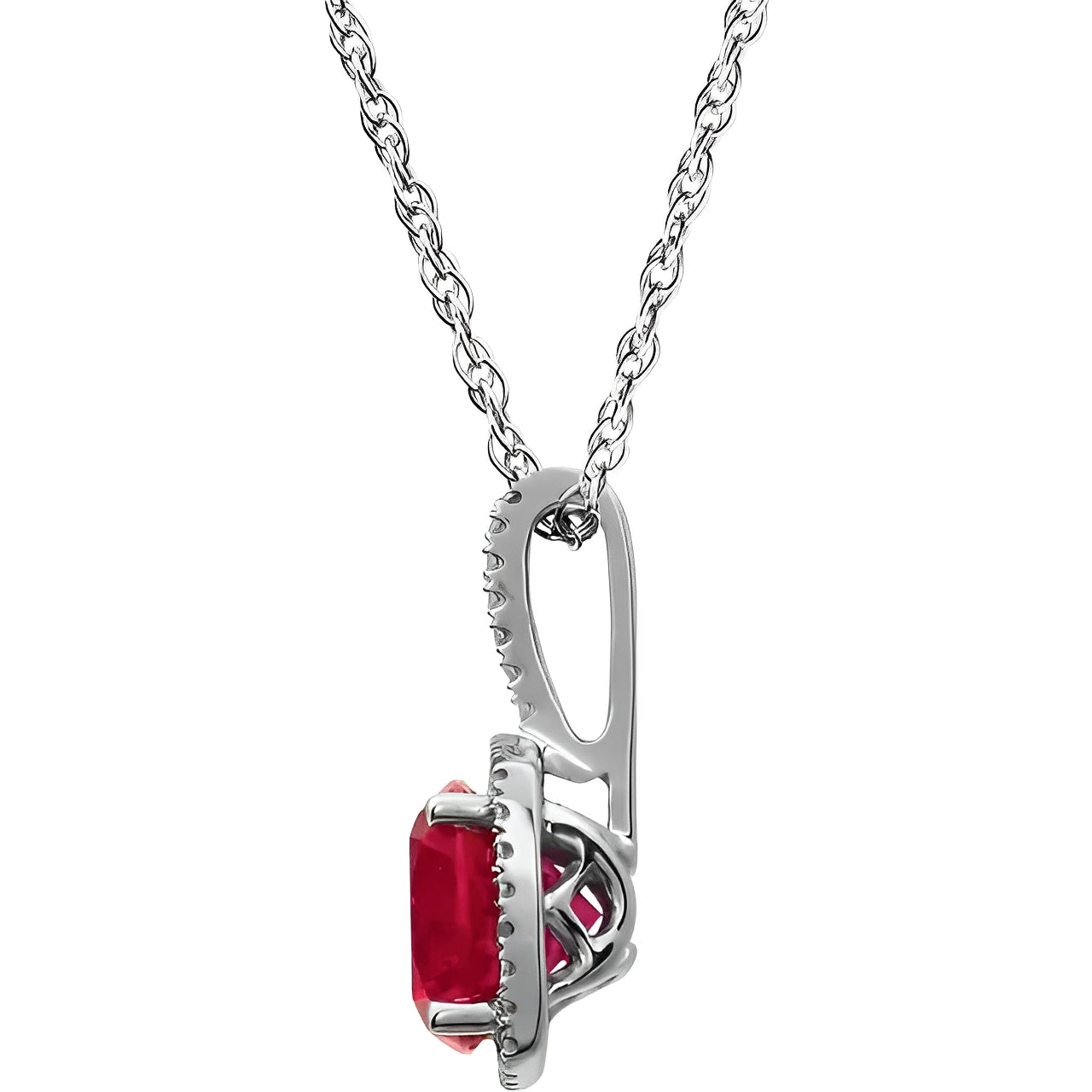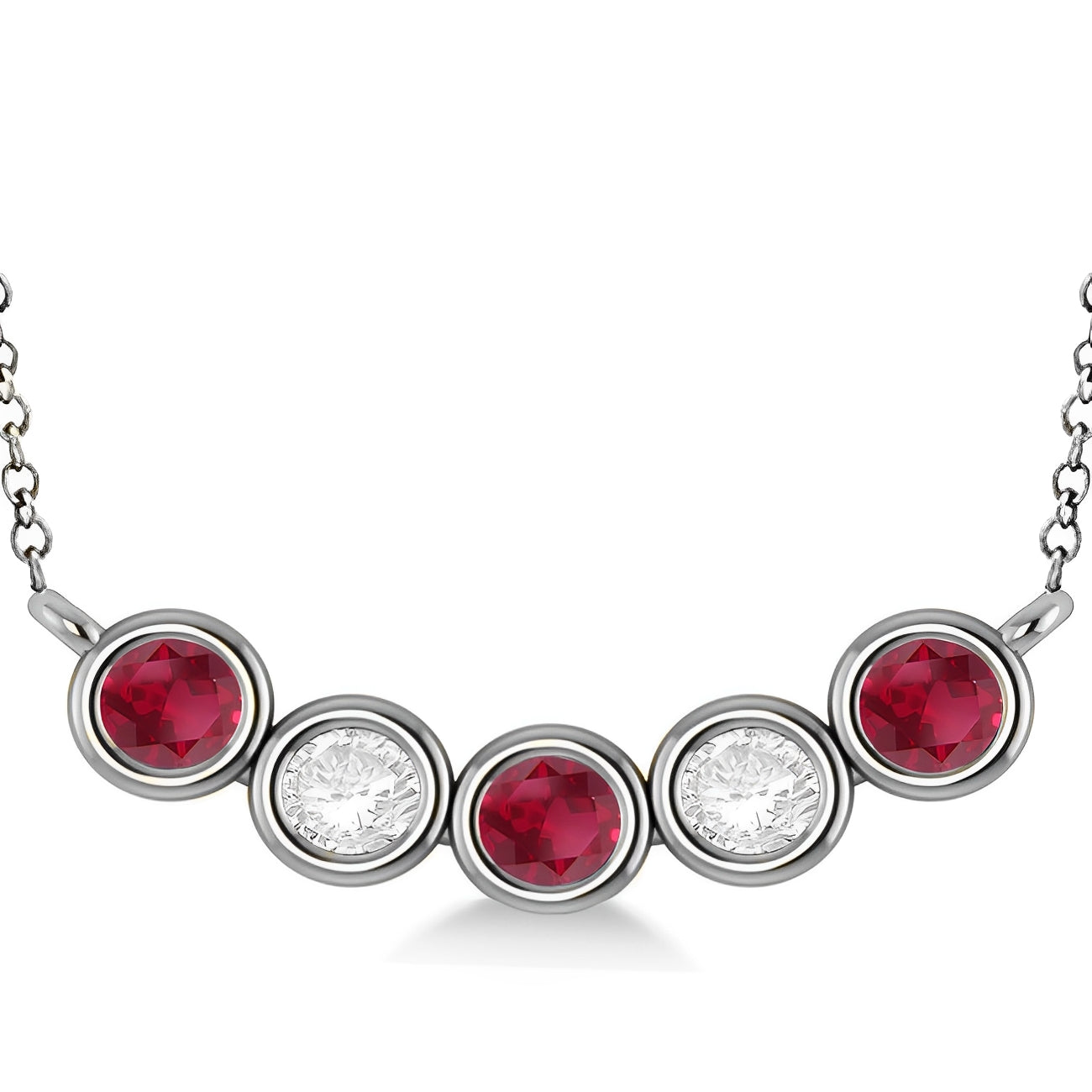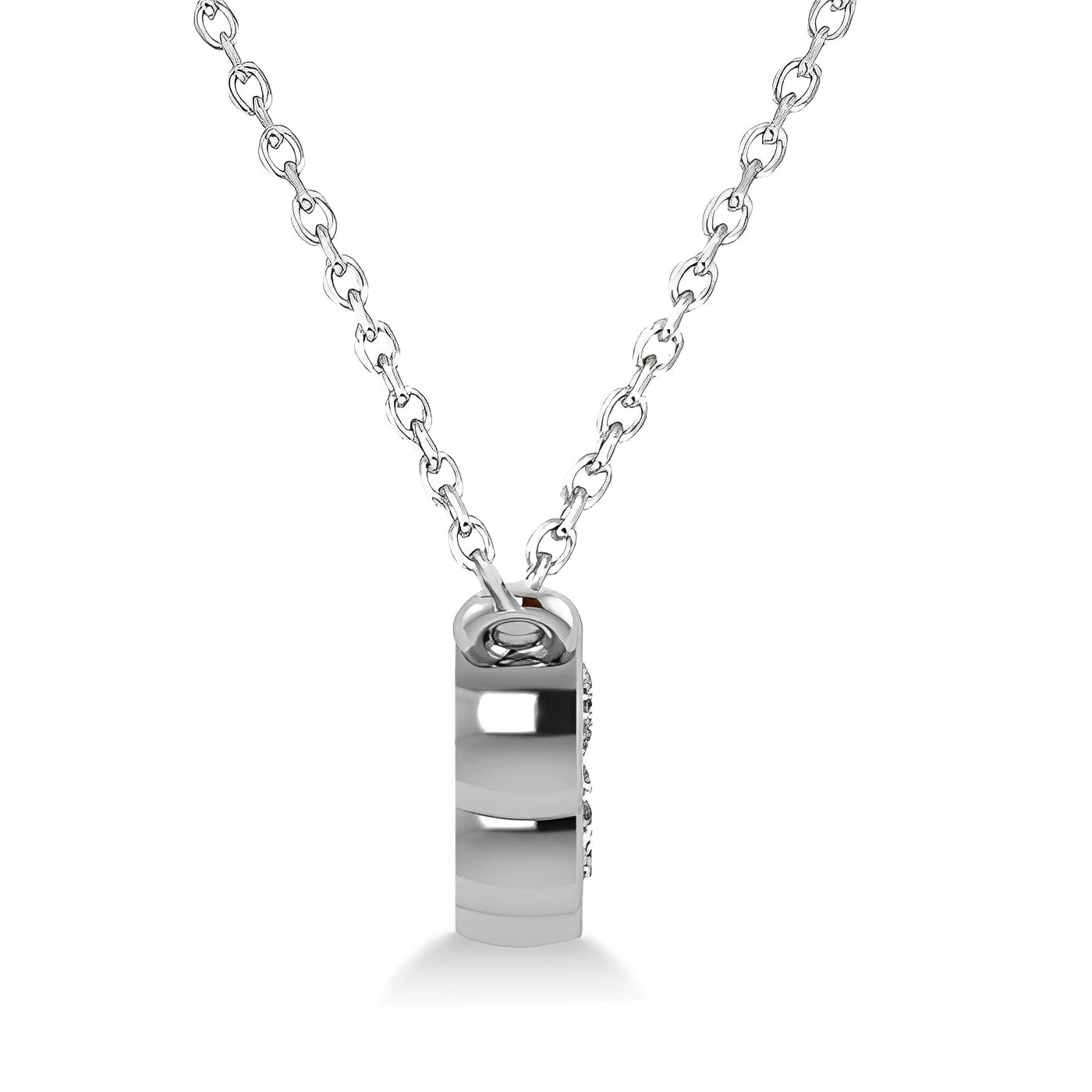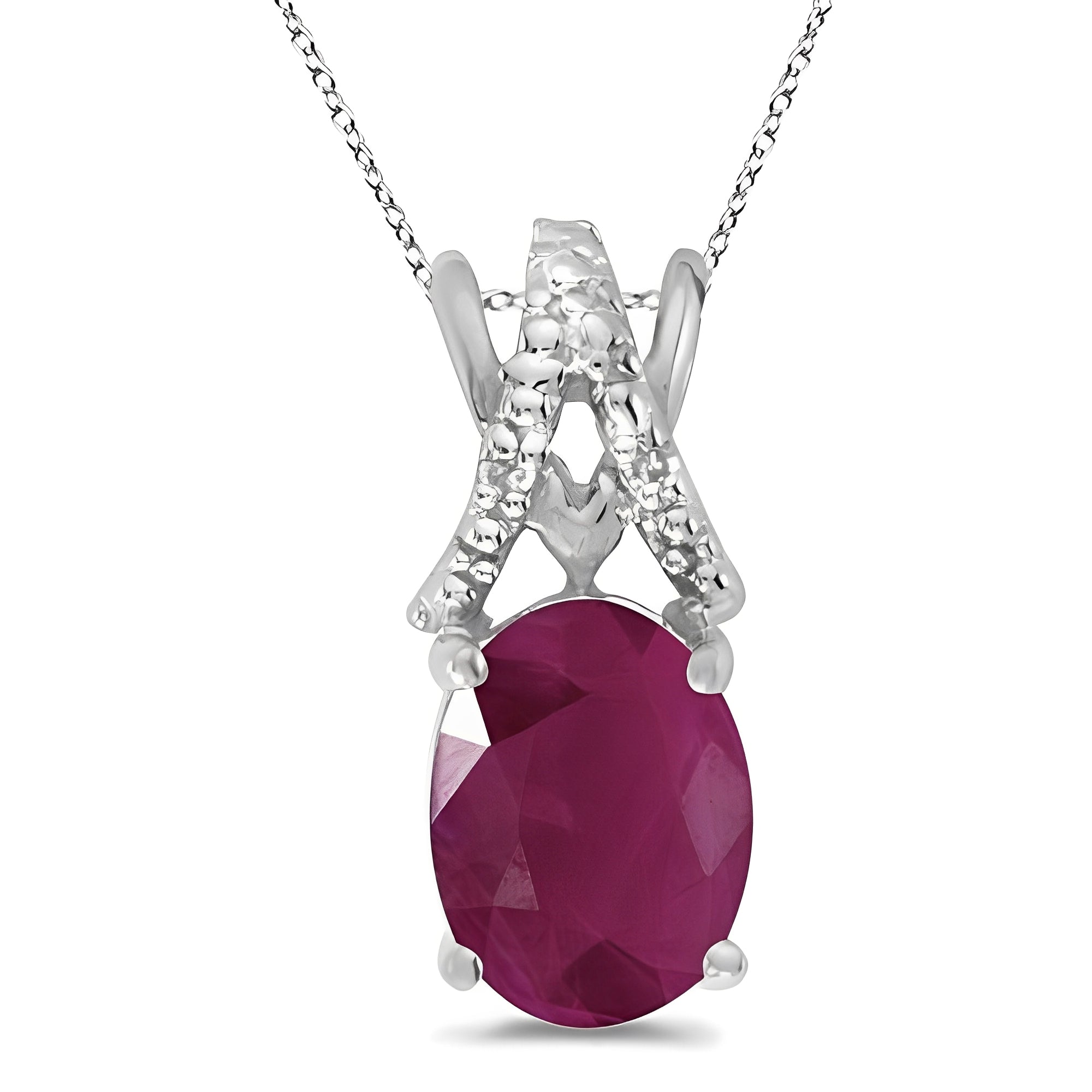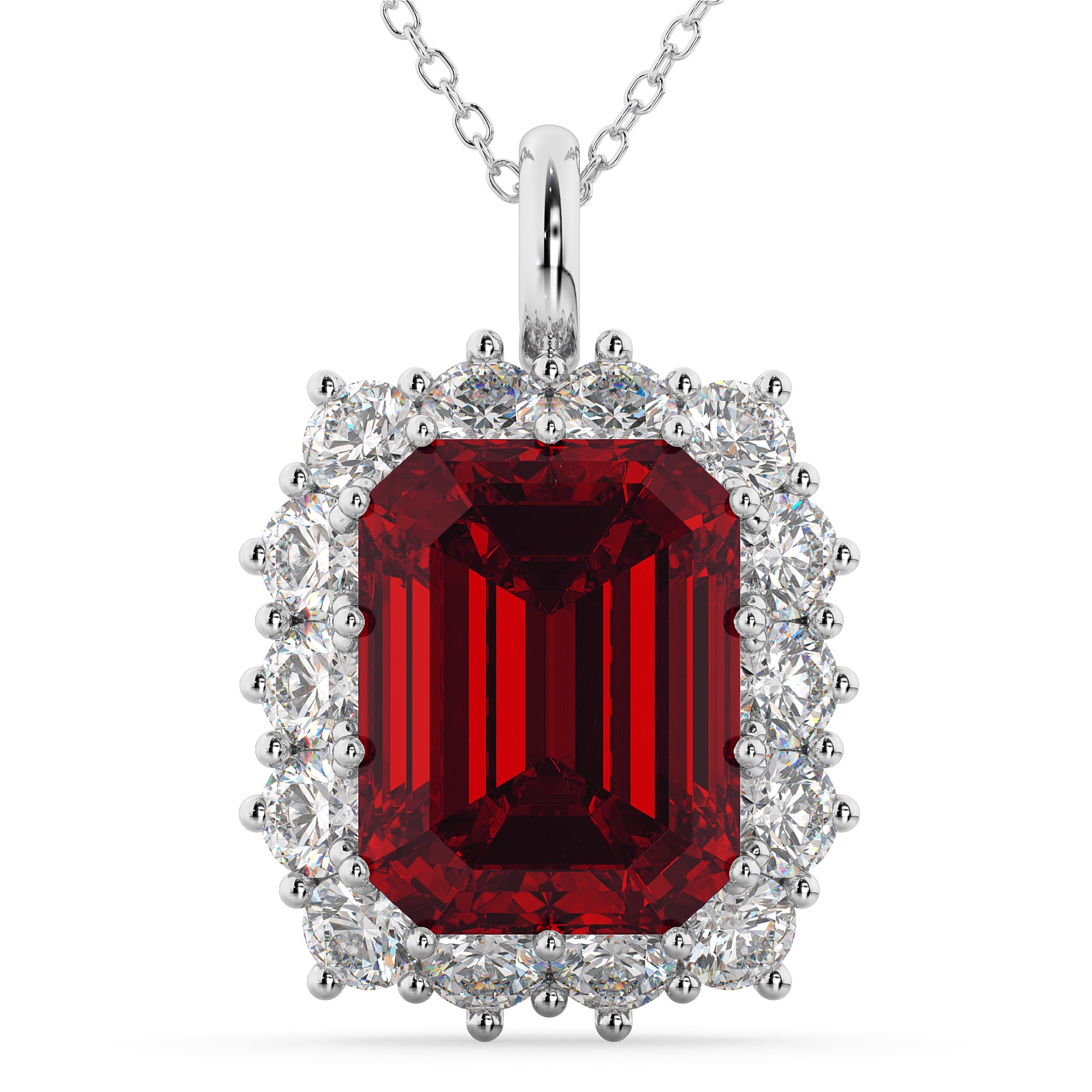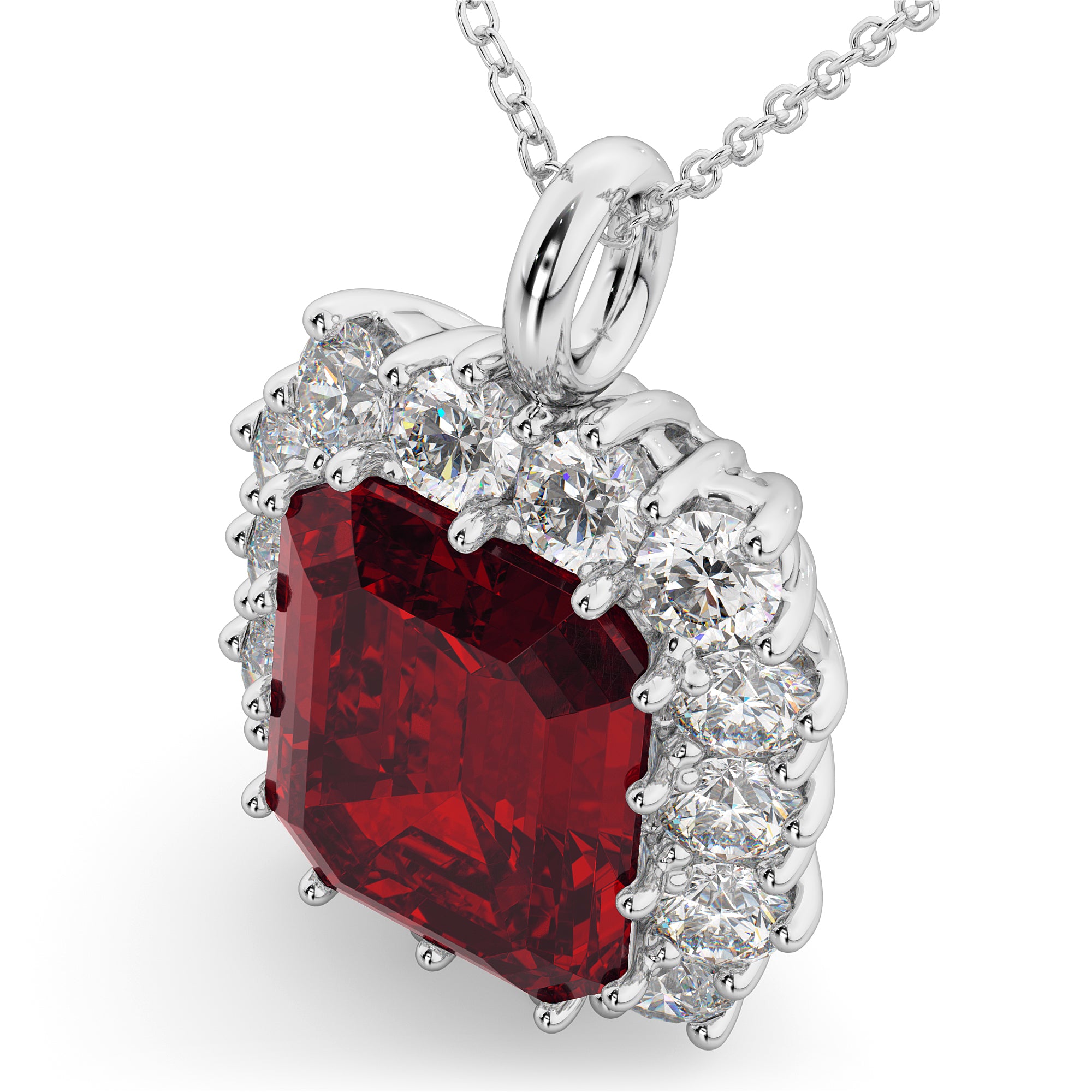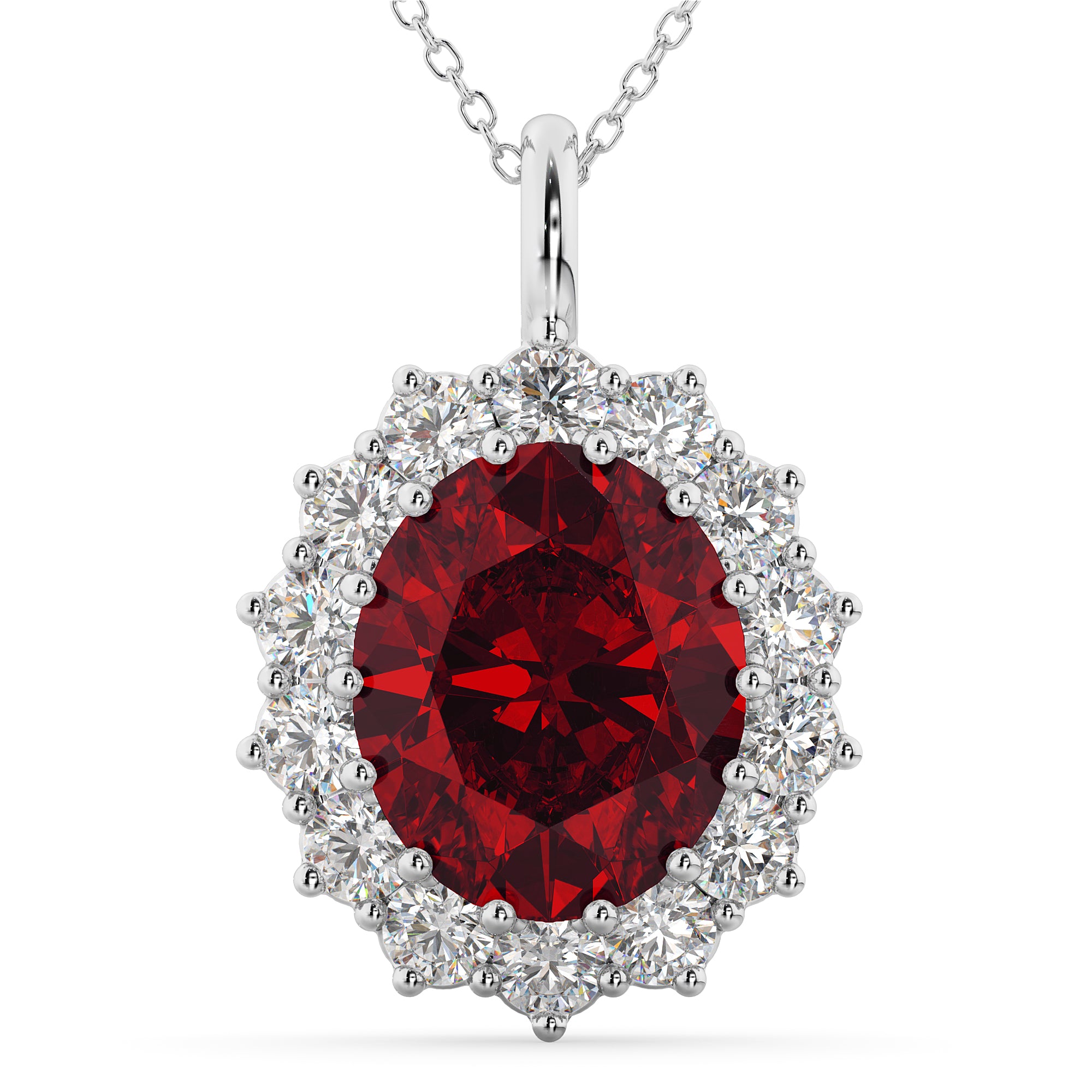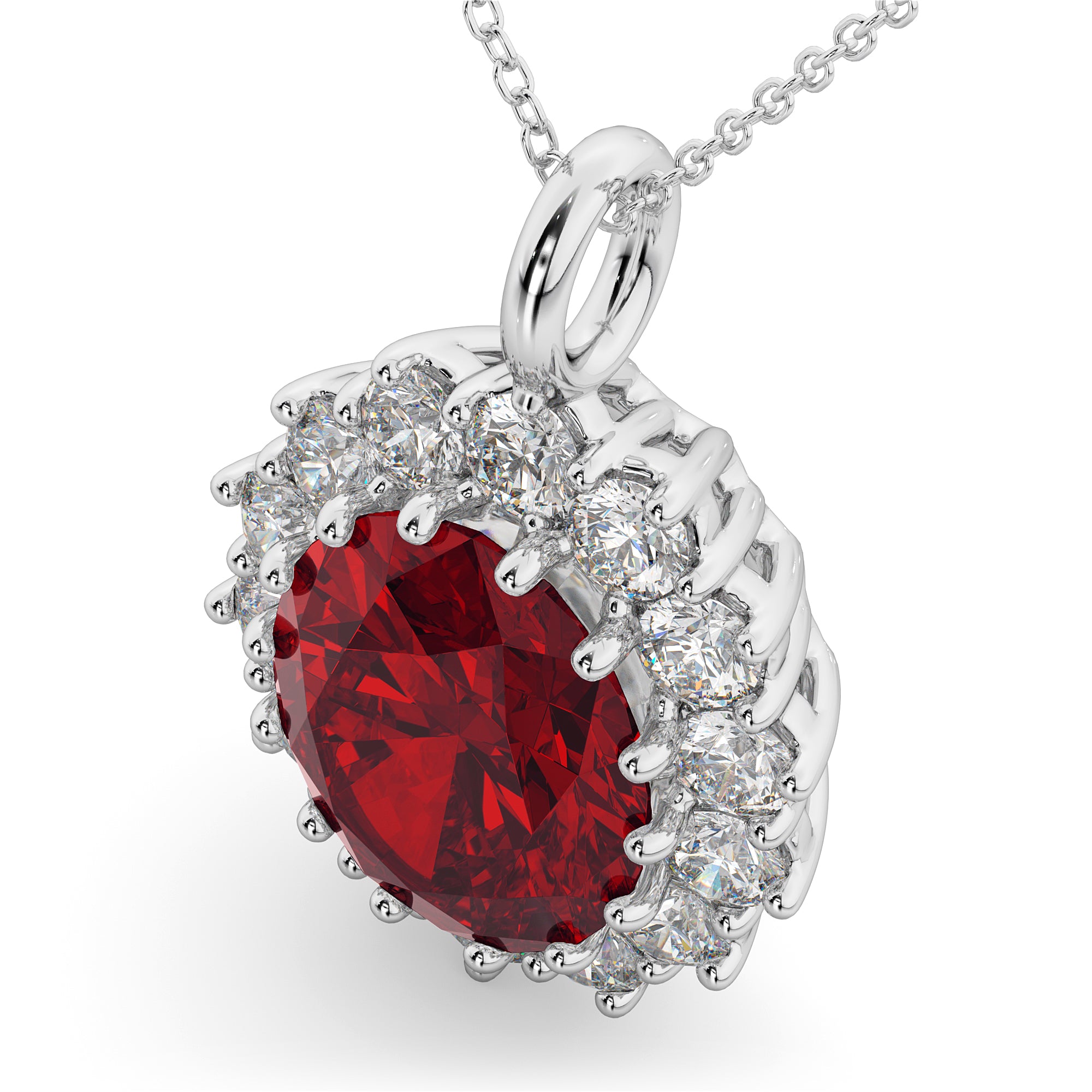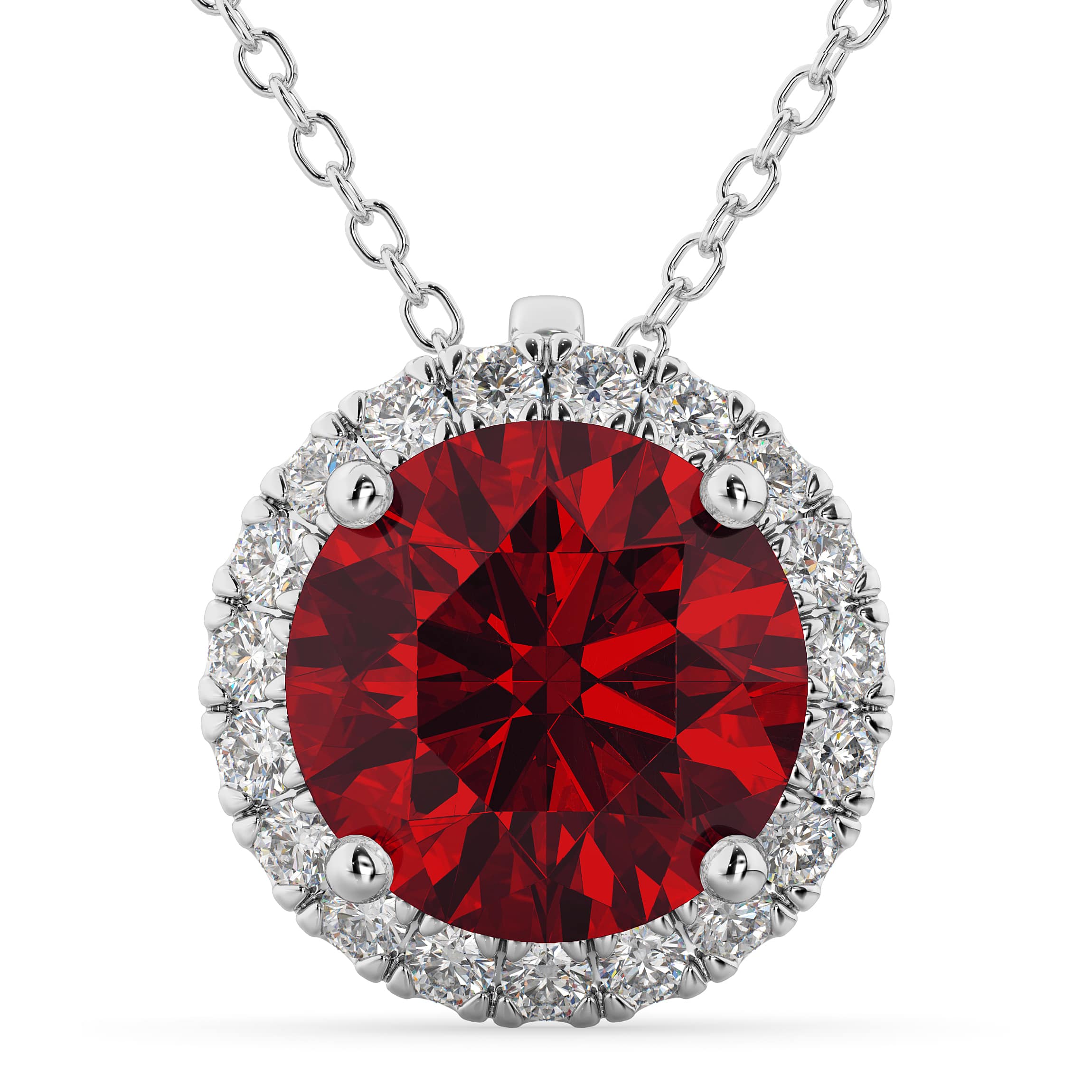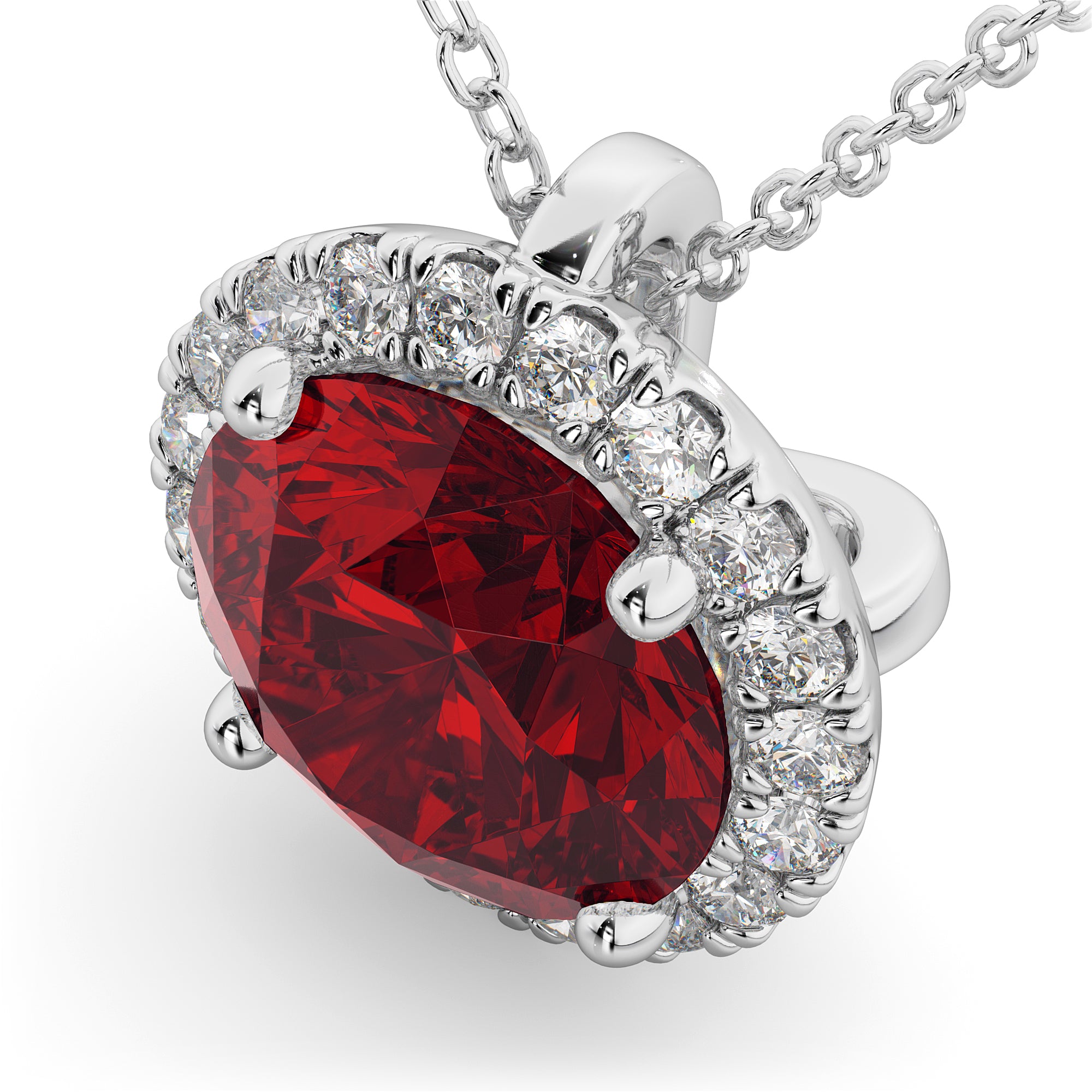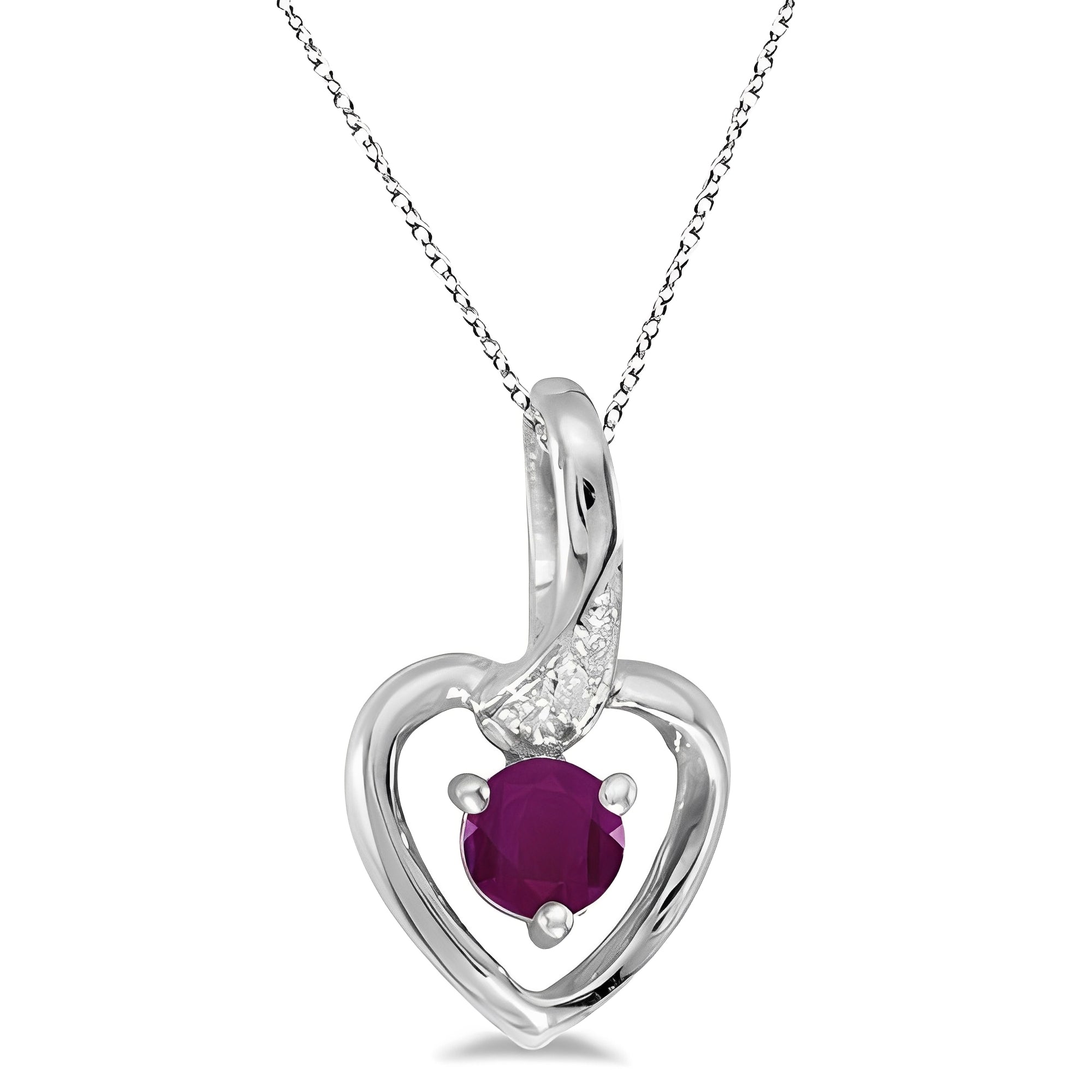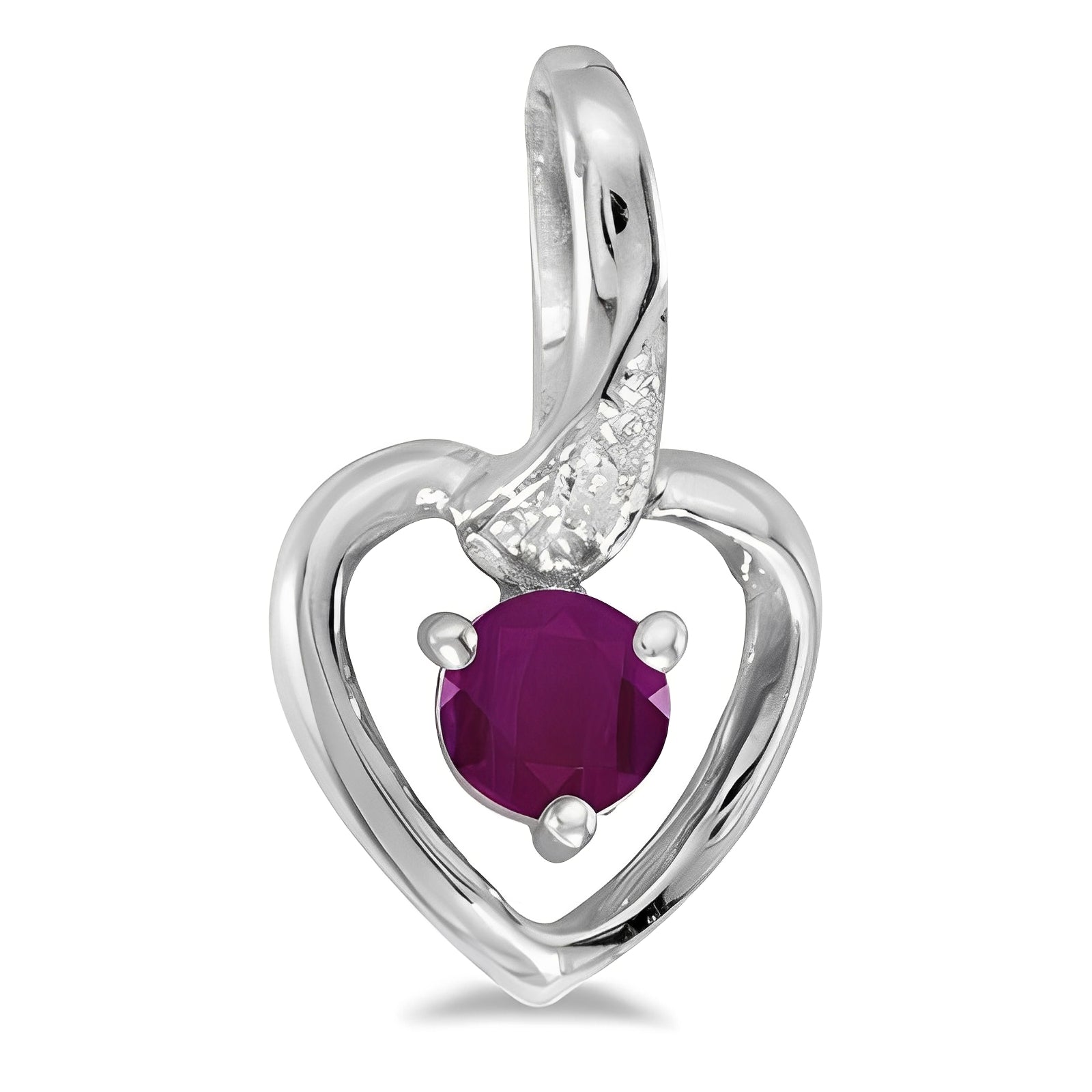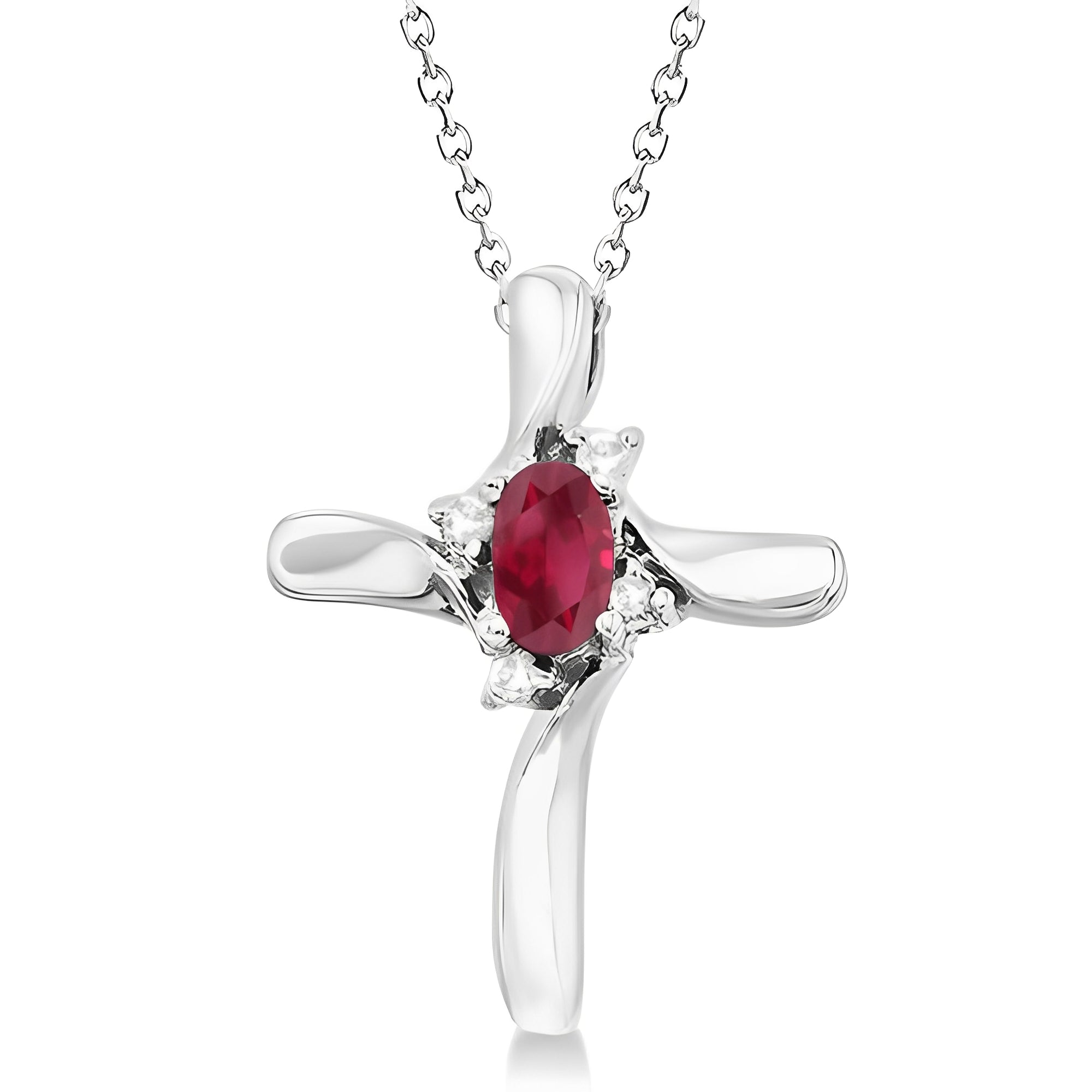Ruby necklaces are some of the most lovely of all necklaces. With it's deep red color and 14k gold chains, you'll be the star of the show wherever you go. Long symbolizing life, vitality and youth, a ruby necklace will be a gorgeous addition to your jewelry collection.
Ruby Necklaces
Filters
Ruby Necklaces FAQ
We get a lot of questions about our Ruby necklaces. Below, we've answered a few of the most popular and provided more information about this alluring gemstone.
1. What Are Rubies?
Rubies are one of the most treasured and sought-after gemstones in the world. Belonging to the corundum mineral family, rubies are essentially red sapphires, with their deep red color coming from trace amounts of chromium. This vibrant red hue is what sets rubies apart—and the more intense and vivid the red, the more valuable the gem becomes. In fact, the most prized shade is often called “pigeon blood red.”
Rubies rank 9 on the Mohs hardness scale, making them second only to diamonds in durability. This toughness makes them perfect for jewelry you want to wear every day, such as rings and necklaces.
These beautiful stones are mined in countries like Myanmar (formerly Burma), Thailand, Sri Lanka, Mozambique, and Madagascar. Myanmar, in particular, is known for producing some of the highest-quality rubies in the world. (1)
2. What Do Ruby Necklaces Symbolize?
Ruby necklaces are rich in symbolism and emotional meaning. Throughout history, rubies have been associated with passion, love, protection, and power. They’ve been worn by royalty and warriors alike, believed to bring courage in battle and to protect against misfortune.
In romantic symbolism, rubies are seen as a stone of love and commitment. Their intense red color is often linked to the heart and strong emotions, making a ruby necklace a powerful gift between partners.
Additionally, in many cultures, rubies are thought to bring prosperity, confidence, and success. They are often given as a sign of respect, admiration, or even as a lucky charm for new ventures or milestones. (2)
3. What Zodiac Signs Are Ruby Neckalces Associated With?
Rubies are the birthstone for July, and they’re most closely associated with the zodiac sign Cancer (June 21 – July 22). Cancer is a deeply emotional and intuitive sign, and ruby is thought to encourage strength, self-love, and the ability to express passion—all qualities that align with this water sign’s energy.
Some also link rubies to Leo (July 23 – August 22), especially because of the ruby’s association with vitality and bold self-expression—core traits of the fiery Leo personality. (2)
4. What Types of Ruby Gemstones Exist?
While rubies are primarily defined by their red color, there are variations in their appearance depending on origin, clarity, and treatment. Here are the main types:
- - Burmese Rubies: Known for their pure, vibrant red and high quality. These are the most valuable and sought after.
- Thai Rubies: Often darker with a slight brownish tint, these are still beautiful but less vivid than Burmese rubies.
- African Rubies (Mozambique, Tanzania): Known for good clarity and strong colors. Mozambique rubies, in particular, are growing in popularity. - - Star Rubies: These display a rare optical effect called asterism, where a star-like pattern appears on the surface when viewed under light.
- Treated Rubies: Many rubies on the market undergo heat treatment to improve their color and clarity. This is common and accepted in the gemstone industry, though untreated stones are typically more valuable. (3)
5. What Properties or Benefits Are Rubies Known For?
In crystal healing and metaphysical circles, rubies are believed to offer powerful benefits for both body and spirit. They are thought to:
- - Boost energy and vitality
- Enhance confidence and self-esteem
- Promote passionate love and sensuality
- Encourage courage and leadership
- Strengthen the heart and circulation
Rubies are often referred to as the “king of gemstones,” not only because of their historical status but also due to their powerful connection to life force and energy. While these benefits aren’t backed by science, many people enjoy the symbolism and emotional support ruby jewelry can offer. (4)
6. How To Clean Ruby Necklaces
Rubies are hard and durable, which makes them fairly easy to clean, but it’s still good to follow best practices:
- - Warm water and mild soap: Use a soft toothbrush or cloth to gently clean around the stone and setting.
- Rinse and dry thoroughly to remove any soap residue.
- Avoid harsh chemicals like bleach or chlorine, which can damage both the stone and the metal setting.
Regular cleaning will help keep your ruby necklace sparkling and preserve its brilliance over time.
7. What Colors Go Best With Ruby Necklaces?
Because rubies are so striking, they pair beautifully with a range of colors:
- - Black: Makes the red pop dramatically and adds elegance.
- White or cream: Creates a soft, romantic contrast.
- Gold tones: Complement the warmth of rubies beautifully—yellow gold in particular.
- Emerald green: Offers a bold, festive combination perfect for holidays or statement looks.
- Navy blue or royal blue: Contrasts beautifully while remaining refined and stylish.
Whether you're dressing up for a special occasion or adding flair to your everyday outfit, a ruby necklace is a timeless piece that makes a bold and meaningful impression.
8. Interesting Facts About Rubies
- - Rubies and sapphires are technically the same mineral—corundum. If it’s red, it’s a ruby; any other color is a sapphire.
- The largest ruby ever mined is called the “Liberty Bell Ruby,” weighing in at over 4 pounds!
- In ancient Burma, warriors believed that implanting rubies into their skin made them invincible in battle.
- Rubies have been traded and prized for thousands of years, making them one of the oldest known gemstones.
- The name “ruby” comes from the Latin word ruber, meaning red.
